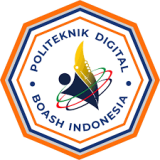The Impact of Big Data and Artificial Intelligence (AI) Technology Implementation on the Financial Report Audit Process at CV. Harmony
Keywords:
Big Data, Artificial Intelligence, Audit Process, Financial ReportsAbstract
This study discusses the implementation of Big Data and Artificial Intelligence (AI) technology in the financial statement audit process, with a case study at CV. Harmony. This study aims to understand how both technologies can improve auditor efficiency, detect and prevent financial conditions, and influence transformation in financial management. This study examines the theoretical and practical benefits of using Big Data and AI, as well as the relevance of previous research that shows the effectiveness of technology in auditing and financial reporting. Author, Sampling using purposive sampling method, namely selecting respondents who are considered the most relevant and have competence in the use of Big Data and AI technology in the audit process at CV. Harmony. The results of this study partially show that the application of Big Data and Artificial Intelligence (AI) technology significantly increases the efficiency of the audit process, assists in detecting conditions, and improves the quality of financial reports at CV. Harmony. In particular, this technology facilitates faster and more accurate data analysis, as well as improves risk assessment and presents more transparent and reliable financial reports.
References
Alimohammadlou, M., & Khoshsepehr, Z. (2023). The role of Society 5.0 in achieving sustainable development: a spherical fuzzy set approach. Environmental Science and Pollution Research, 30 (16), 47630–47654. https://doi.org/10.1007/s11356-023-25543-2
Fadilla, A., Army, E., Dwi, Y., Rustam, P., & Pontoh, GT (2025). The Role of Artificial Intelligence in Improving Audit Quality: A Systematic Literature Review. 5.
Kayani, UN (2025). Exploring prospects of blockchain and fintech: using SLR approach. Journal of Science and Technology Policy Management, 16 (1), 5–41. https://doi.org/10.1108/JSTPM-01-2023-0005
Natali, Elsa., Rely, Gilbert., Nila Sari, P. (2025). Matter. 772. 2 (3), 772–782.
Prasetyo Nugrahanti, T., Sudarmanto, E., Bakri, AA, Susanto, E., & Male, SR (2023). The Effect of Big Data Technology Implementation, Auditor Independence, and Financial Reporting Quality on the Effectiveness of the Audit Process. Sanskara Accounting and Finance, 2(1), 47–54. https://doi.org/10.58812/sak.v2i01.249.
Sewpersadh, N.S. (2023). Disruptive business value models in the digital era. Journal of Innovation and Entrepreneurship, 12 (1), 1–27. https://doi.org/10.1186/s13731-022-00252-1.
Wahono, PS, Safuan, S., & Alhabshy, MA (2023). Use of E-Audit Applications in the Police Inspectorate Management Information System. Global Education Scientific Journal, 4 (2), 1122–1130. https://doi.org/10.55681/jige.v4i2.869.
Downloads
Published
How to Cite
Issue
Section
Citation Check
License
Copyright (c) 2025 Lee Yin Natussifa, Khana Nurazizah, Dinda Hapsari Ragil Saputri, Nur Rochim, Johanis Souisa

This work is licensed under a Creative Commons Attribution 4.0 International License.










